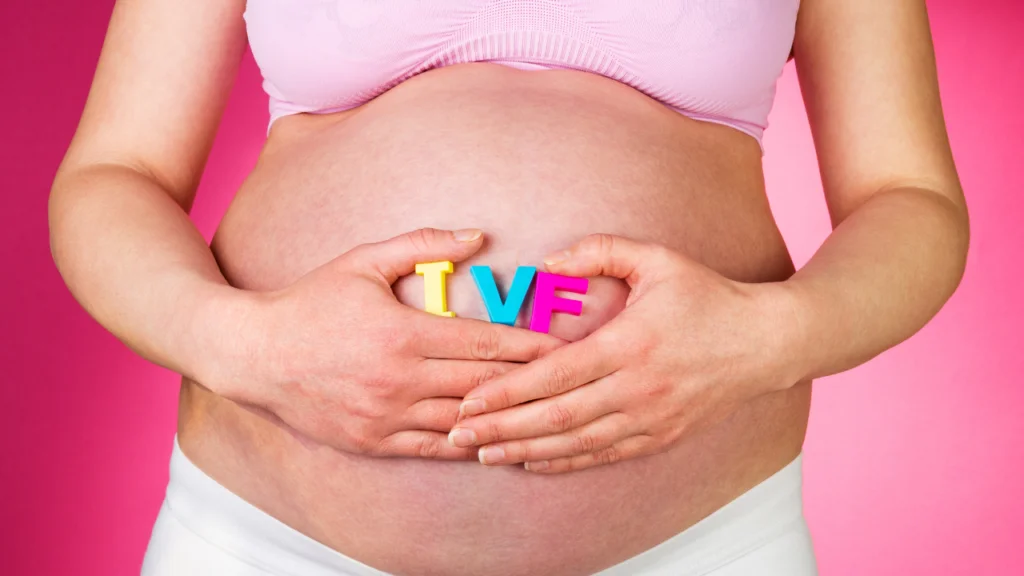IVF
Understanding In Vitro Fertilization (IVF): A Comprehensive Guide 2024
Introduction
In vitro preparation (IVF) is a kind of helped regenerative innovation (Workmanship) used to assist people or couples with considering a kid when conventional strategies have not been effective. It includes treating an egg with sperm outside the body in a research center dish and afterward embedding the subsequent undeveloped organism into the uterus.

What Is IVF Treatment?
IVF treatment is to create a pregnancy outside the uterus in a laboratory. The procedure is a scientific treatment that takes the woman’s egg and the man’s sperm and fertilizes them in the tube to create the pregnancy. The length of time varies depending on the laboratory, and from the third day to the fifth day after the fertilization, it is integrated into the woman’s uterus and allowed to continue its development. IVF treatment is an option for couples who have difficulty conceiving.
IVF can be a successful choice for different ripeness issues, including:
- Ovarian Excitement: Fruitfulness prescriptions are utilized to animate the ovaries to create different eggs.
- Egg Recovery: Mature eggs are recovered from the ovaries utilizing a negligibly obtrusive strategy under sedation.
- Treatment: The eggs are prepared with sperm in a lab dish, either through conventional insemination or ICSI.
- Undeveloped organism Culture: Prepared eggs (undeveloped organisms) are refined in a research facility for a few days to consider improvement.
- Incipient organism Move: At least one undeveloped organism is moved into the uterus utilizing a meager catheter.
- Pregnancy Test: Roughly fourteen days after undeveloped organism move, a pregnancy test is performed to decide whether the IVF cycle was effective.
Who Is Treated With IVF?
- For those who have tried to get pregnant without any contraception for two whole years and failed
- For women whose fallopian tubes are blocked due to various reasons
- If the part that produces eggs does not produce eggs properly
- If the number of eggs released decreases and the quality decreases at the same time
- If a woman’s uterus does not produce any eggs
- If the sperm count is very low due to various reasons

How Likely Is IVF To Succeed?
- IVF success rates decrease with age, so IVF is recommended for women under the age of 43.
- If a woman is under 35 years of age, the chance of IVF success is 32 percent, which means that thirty-two out of a hundred women who use IVF treatment will have a child.
- If her age is between 35 and 37 years, the chance of IVF success decreases to 25 percent, which means that twenty-five out of a hundred women who use IVF treatment will have children.
- If her age is between 38 and 39 years, the chance of IVF success is 19 percent, which means that nineteen out of a hundred women who use IVF treatment will have a child.
- If her age is between 40 and 42 years, the chance of IVF success drops to 11 percent, which means that eleven out of a hundred women who use IVF treatment will have a child.
- Finally, if she is 43 years old or older, the chance of IVF success is 5 percent.

Conclusion
IVF achievement rates can shift contingent upon elements like age, reason for barrenness, and the nature of eggs and sperm. It might require different cycles to accomplish an effective pregnancy. While IVF can be a compelling ripeness treatment, it is likewise connected with physical, close to home, and monetary difficulties. It’s fundamental for people and couples considering IVF to talk with fruitfulness subject matter experts, gauge their choices cautiously, and look for help in the interim. Moreover, grasping the dangers, advantages, and possible results of IVF can assist people with coming to informed conclusions about their fruitfulness process. additional info on genitial warts.





